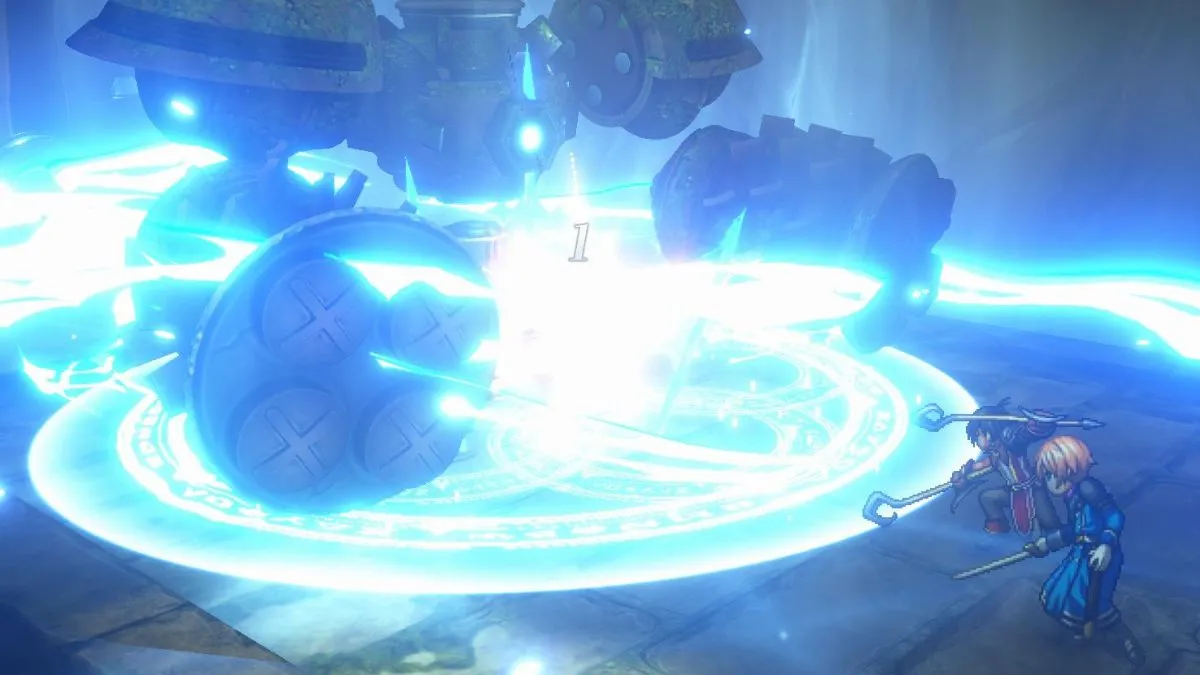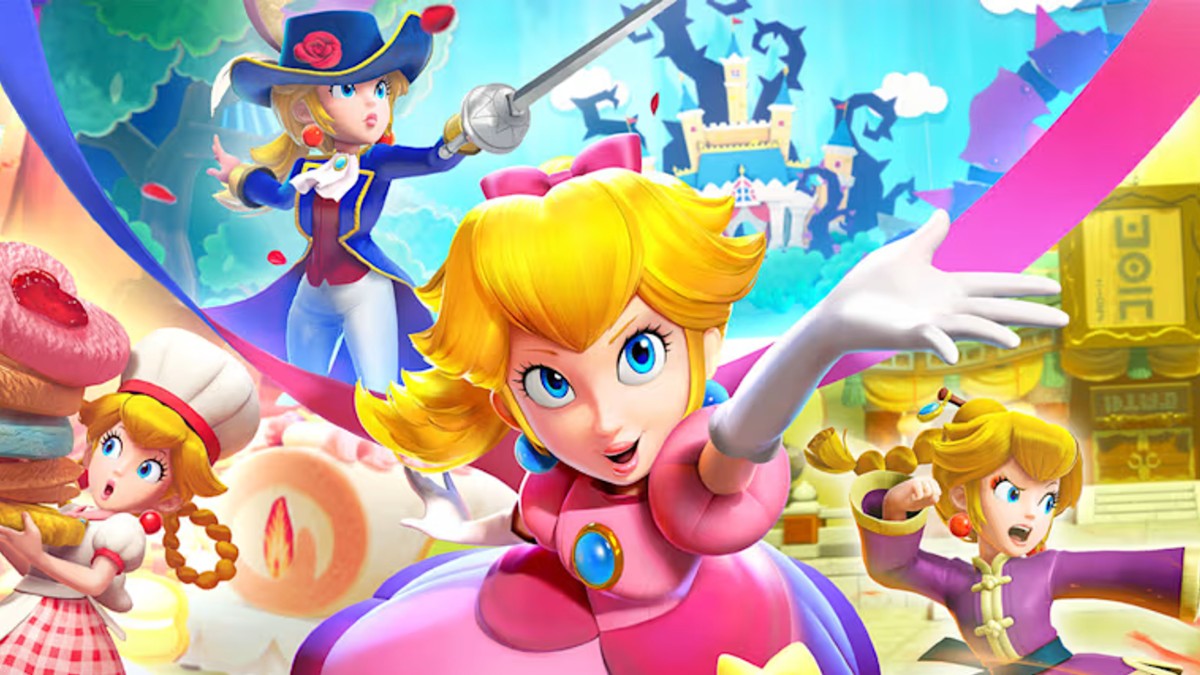Though the premiere episode, Deep Breath, isn’t a stunner, it’s not a bad introduction to Peter Capaldi’s Doctor, either.
Steven Moffat’s recent Doctor Who episodes have been king-sized spectacles, telling stories that were massive in scope and often required an entire season get around to telling properly. But the result of this scaling up was often a storytelling mess, where characters, events, and special effects were hurled at the audience without much in the way of a coherent storyline to hold them together. While these stories were often fun for the first viewing, plot holes and inconsistencies became glaring the more you stopped to think about them… and sometimes the thin string of plot didn’t quite manage to last through the entire episode, leaving you scratching your head and wondering what you were watching.
Peter Capaldi’s outing as the Doctor is different. This episode focuses on telling a small story rather than trying to create a big — but essentially meaningless — spectacle, and holds together better than a lot of the last season because of it. This introduction gives us an indication of what to expect for Capaldi’s turn as the Doctor — which is reminiscent of Sylvester McCoy’s time in the role, and not just because of the Scottish accent — and sets up a few mysteries that are sure to play out as the season progresses.
Sure, the episode has its own plot holes (practically a Doctor Who staple) and if you loved Matt Smith and David Tennant, Capaldi’s darker turn might not be what you want out of the character. But all in all, the episode is entertaining, giving us some truly great moments with Clara, who really shines as she tries to hold her own when she’s no longer sure the Doctor has her back. And as a post-regeneration episode, where the Doctor is incapacitated for a large part of the running time, there’s plenty of room for episode’s colorful cast of side characters, leaving the ever-entertaining trio of Vastra, Jenny, and Strax an opportunity to take center stage.
However, the episode is also highly derivative of an earlier — arguably better — Moffat episode and on reaching the end you might just wonder why you didn’t watch the original instead. (More on this later.)
You can watch new episodes of Doctor Who on Saturday nights on BBC America — though cord-cutters will have to pick up the current season on iTunes or Amazon Instant. If you want to catch up on earlier seasons, they can be found on both Netflix and Hulu. Now, for those of you who have watched (or don’t mind spoilers), read on for more about the first episode of season 8, Deep Breath.
When we left the recently-regenerated Doctor with Clara at the end of Time of the Doctor, the TARDIS was heading for a crash-landing and the Doctor had asked Clara if she knew how to fly it. (Spoiler alert: she doesn’t.) But we quickly find out what happened to them, as the episode opens to a tyrannosaurus rex tramping through Victorian London, where it coughs up the TARDIS.
A Different Kind of Doctor
As you’d expect when a dinosaur appears in the heart of London, there’s a crowd gathered, including the Victorian detective trio of Vastra, Jenny, and Strax, who hurry down to meet a very confused Doctor. He emerges from the TARDIS guessing Strax is one of the seven dwarves, calling Vastra “the green one,” Jenny the “not green one,” and Clara “the not me one.” Names, he explains, aren’t his area.
He gets on better with the dinosaur (he speaks dinosaur, because of course he does), calling the t-rex “my lady friend” and explaining that he isn’t trying to flirt with her. It’s a joke, and a funny one with the Doctor’s overly dramatic delivery, but it sets the tone for a big change this season: Peter Capaldi isn’t the ladies’ man that Matt Smith had been. This is reinforced throughout the episode as Clara realizes the Doctor isn’t exactly who she thinks he is — he’s not a young man he appears, but is instead thousands of years old. “You might as well flirt with a mountain range,” Vastra tells Clara. When Clara denies it, Vastra suggests “He flirted with you.”
Capaldi’s Doctor not only doesn’t flirt, but towards the end of the episode (when he’s more or less himself again), he and Clara have a conversation that indicates a dramatic change in the show’s tone:
“Clara, I’m not your boyfriend.”
“I never thought you were.”
“I never said it was your mistake.”
And wow, this little snippet of dialog is a major rejection of the show’s recent romantic bent — and I find it a refreshing change. With Smith’s Doctor, the trend of randomly kissing people (even people who had no interest in being kissed) had already moved from “he’s an adorable idiot” to “he’s a creep,” which makes this very welcome. Though this isn’t the only change we see in Capaldi’s Doctor, it’s a huge one.
Capaldi spends most of this episode more than a little confused. He ends his first scene by fainting, is baffled by everyone’s accents (“You all sound all English, you’ve all developed a fault!”), and is puzzled by the appearance of his own face in the mirror because he’s sure he’s seen it before. Of course, he has: Capaldi also played bad guy Caecilius in the 2008 episode Fires of Pompeii (which also featured a pre-Amy Pond appearance of Karen Gillen), but how this ties into the plot is of yet unclear. “It’s like I’m trying to tell myself something,” the Doctor muses, but we get to the end of the episode without refiguring out just what — presumably we’ll find out later this season.

A New Dynamic
This episode isn’t just a change in the Doctor: the dynamic between the Doctor and Clara is different, too. Clara’s always seemed like a bit of a cardboard cutout to me. Her character is a lot like the previous companion, Amy Pond, and very little has been done to flesh her out into a unique individual. In fact, she feels a lot like a classic Who companion — and an early one at that — with little character motivation beyond helping the Doctor out of whatever situation he’d landed himself in this week.
But Clara in Deep Breath feels a lot more real than she has in the past. She’s frustrated at the Doctor’s sudden change and wants the old one back, acting as a surrogate for many Matt Smith-loving viewers. But she’s voicing that frustration in a way that makes her seem awfully shallow, like she was only following the Doctor around for his looks. When Vastra calls her on it, she gets angry, proclaiming “I’ve never had the slightest interest in pretty young men.” It has something of the lady doth protest too much to it, but it’s also a lot more spark than we usually see from Clara and it brings a lot of life to the character.
Her dynamic with Capaldi’s Doctor is more “old married couple” than “boyfriend and girlfriend,” as the two of them seem to do little but bicker when they’re in the same room together. The Doctor insists she’s a control freak — something we haven’t exactly seen from the character in the past, but Clara protests it in a way that certainly makes it seem probable. Again, this is a sudden turn for Clara, but she seems more interesting for having these flaws and sanding up for herself despite them.
Her finest moment this episode — and perhaps her entire run to date — comes when the Doctor has apparently abandoned her to the villain of the week. She doesn’t know this new Doctor yet, and neither Clara nor the viewers can be entirely sure whether he’ll be in time to save her. As she’s threatened with torture and death, she breaks down, crying, but never backs down or gives up on trying to talk her way out of the situation. Finally, she says that if the Doctor is still the Doctor, he’ll have her back — and she holds a trembling hand out behind her in hopes he takes it. He does, but there’s a moment of doubt that you really feel in the meanwhile. Standing up to the bad guys when she knows the Doctor will always be there to help her is one thing, but standing up to the bad guys when she’s alone and without hope of rescue is something else entirely — and shows a heck of a lot of strength and determination from Clara. It’s a great moment.

Meet the MacGuffin
The dinosaur we’re introduced at the opening of the episode is actually only a MacGuffin to lead us to the larger plot. The Doctor has awoken from a post-regenerative nap to rush to the rooftop of the Paternoster household to have a chat with the dinosaur when it suddenly burst into flames. (“No! Don’t do that!”) The Doctor blames himself for the creature’s death, saying “She was scared and alone. I brought her here. Look what I did.”
However, at least the Doctor is invested in this new puzzle, which is a step up from his recent confusion. He asks whether any similar deaths have happened recently, which is how we find out that there’s a spontaneous combustion trend going on in London now, which Vastra speculates is intended to destroy some kind of evidence in the bodies — an apt point, since the villains of the episode turn out to be organ thieves.
We’ve already seen a partially clockwork man steal a human’s eyes — and that same clockwork man is walking away from the burning dinosaur without so much as looking its way. So we’ve clearly found our villain, but as he loses himself in the crowd, our investigators are stuck at square one on this odd case.
Again, it’s Clara who pushes the story forward, finding an advertisement in the paper directed at the “impossible girl,” which she decides is a cryptic clue from the Doctor — who’s run off to investigate on his own. But when she meets the Doctor at a restaurant, it turns out he hasn’t placed the ad — but by the time they realize that neither of them has placed the ad, they’re in trouble. The entire room is full of none-too-friendly clockwork people who prevent them from leaving, lock them into their seats, and send them down to their leader to have their organs harvested. (“You’ve got to admire their efficiency,” the Doctor comments.) They escape from their bonds with the help of the sonic screwdriver (after some bickering in which the Doctor complains about missing Amy), but the Doctor lingers in the room with the androids, wondering why it seems familiar — and when Clara comes to push him through the door, she winds up stuck behind when the door slams closed.
Welcome to the S.S. Marie Antoinette
There’s a reason why the Doctor thinks this is familiar: we’ve met these bad guys (or at least their distant cousins), in an episode that was rather better than the one we’re watching now. In the 2006 episode The Girl in the Fireplace, the Doctor (David Tennant), Mickey, and Rose land on a 51st century spaceship — in this case, the vessel is called the Madam de Pompadour — only to find it has windows in time to 18th century France.
Why? The android crew has been trying to repair the ship using human parts — the human crew has been recycled for parts — and they’ve decided that they need the brain of the historical Madam de Pompadour to finish their work. The droids in that episode are presented as having a few screws loose: their plan isn’t exactly practical as they’re wasting a tremendous amount of energy trying to reach Madam de Pompadour while their human crew is dead and any mission they had presumably long-since ended.
The droids we see here are similar, but not identical, to the previous clockwork droids (they certainly have better CGI effects, with their blend of human features with clockwork parts), and really the fact that their sister ship is named as the Madam de Pompadour is the only thing that establishes a clear connection between the two. Unfortunately, that link mostly serves to remind us of how great Doctor Who used to be — any way you want to look at it, comparing Deep Breath to Hugo award-winning The Girl In the Fireplace ends with the latter coming out on top.
While these human-droid hybrids are decidedly creepier than Fireplace’s all-clockwork droids, they make a lot less sense. Despite the fact that the mechanical components we see of these droids — and the droids in the previous episode — seem like things that could be constructed with Victorian-era technology, they’re harvesting human organs to keep themselves going. Even if this is perhaps meant to disguise them, it makes little sense to have fully human disguises for the large number of droids we see — especially when they’ve clearly not managed to harvest enough parts to get their ship going again. (By comparison, on the Madam de Pompadour we saw human organs wired into machinery, helping the ship actually function.)
Further, the villain’s end game of getting away in an escape pod — the ship’s original escape pod, turned into a hot air balloon made out of human skin — stretches credulity. Even in the Victorian era, surely there was a more practical material with which to make a hot air balloon than human skin. (Though it does rather make these droids the poster children for why we need Asimov’s laws of robotics.) Instead of having the clockwork droids flow naturally into the framework of the story, you have to wonder why the droids of Deep Breath — and their connection to the earlier incarnation — are there at all.
Though the connection will presumably be explained as the season progresses, the story just doesn’t stand up well on its own, and the bad guys left me more confused than intrigued. (And really wishing I’d spent the last hour rewatching The Girl in the Fireplace.) The story just would have worked better — and made more sense — without forcing the connection to Fireplace.
Androids in Search of the Promised Land
One sign these droids are a bit off: their leader proclaims, when asked, that they’re searching for the promised land. When the Doctor confronts him in the escape pod — which is actually just the restaurant he and Clara were in earlier — he sits calmly at a table and pours both of them a drink, saying “I’ve got a horrible feeling that I’m going to have to kill you.” But instead of making good on this threat, the Doctor simply asks the droid — who he argues is now more human than machine — what he thinks of the view.
It’s certainly a dark turn for the Doctor, but probably not the darkest — that still goes to Tennant’s performance in The Waters of Mars — and it’s much more understated than what we would have likely seen from Tennant or Smith in the same position. Still, there’s something very dangerous in the way he says it that makes you think the Doctor just might follow through. And when he follows up with: “Don’t make assumptions about how far I will go to protect them because I’ve already come a very long way and unlike you… I don’t expect to reach the promised land.”
Yikes. That’s some scary stuff. But the show leaves the question of whether the Doctor would or wouldn’t hanging… at least for now. Instead of showing just what happens, we only see the two of them grappling in the doorway of the ship, and then the droid having fallen. We have no idea whether he fell, jump, or was pushed… and with this new Doctor, anything seems possible.
So What’s the Final Judgement?
This episode was decent, and perhaps one of the better ones of the past few seasons — but it’s definitely not the best. Though it had its fair share of plot holes, the episode overall held together better than the recent Day of the Doctor or Time of the Doctor, in large part because it was trying to tell a single, straightforward story instead of stretching to tie together many disparate plot points like both Day and Time did.
Beyond that, the pacing in the episode was odd, featuring lots of domestic scenes with Vastra, Jenny, Strax, and Clara around the Paternoster household that were all entertaining — but rarely tied into the main plot. All in all, they felt like filler designed to help the episode reach its just-over-90-minute running time, and though these moments weren’t unwelcome (every interaction between Clara and Strax is pure comedic gold) it seemed like time that could have been spent fleshing out the plot or the character of the new Doctor.
Peter Capaldi and Jenna Coleman both gave stellar performances this episode, and though we’ve seen little of the two together so far, what we have seen could be the basis for a fantastic season of Doctor Who. However, we’ve also seen some of showrunner Steven Moffat’s trademark crypticness, with hints and references to a much bigger story — and sometimes those big stories can turn out to be more confusing and less entertaining than the relatively small story he told in this episode. Right now, things are up in the air: the season might get better or it might get worse.
Still, I’m enjoying Capaldi and Coleman enough that I intend to hang on for the ride.
Love this episode of Doctor Who? Hate this episode of Doctor Who? Let us know what you think in the comments!



